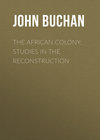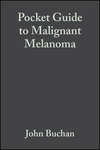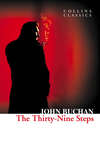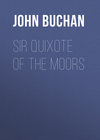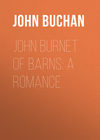Kitabı oku: «The African Colony: Studies in the Reconstruction», sayfa 7
We spent the night above the Elands River, a very beautiful full water, almost on the site of the battle. The Elands River fight seems to have slipped from the memory of a people who made much of lesser performances; but to soldiers it is easily the Thermopylæ of the war. Five hundred or so of Australians of different regiments, with a few Rhodesians, were marching to join another force, when they were cut off at Elands River by 3000 Boers. They were invited to surrender, and declined. A small number took up a position beside the stream; the remainder held a little ridge in the centre of the amphitheatre of hills. For several days they toiled at dug-outs – terrible days, for they were shelled continually from the whole rim of the amphitheatre. One relieving force from the west retired in despair; a relieving force from the east was deceived by false heliograms, and went away, believing the work accomplished. Then came the report that they had surrendered; and then, after some fifteen days, they were found by Lord Kitchener, still holding the forlorn post. It was a mere sideshow, but to have been there was worth half the clasps in the campaign. More shells were fired into that little place than into Mafeking, and the courage of the few by the river who passed up water in the night to their comrades is beyond praise. The Colonials will long remember Elands River. It was their own show: without generalship or orders, against all the easy traditions of civilised warfare, the small band followed the Berserker maxim, and vindicated the ancient dignity of arms. In the morning we went over the place. The dug-outs were still mostly intact, and in a little graveyard beneath rude crosses slept the heroic dead.
A few miles farther on and the summit of a ridge was reached, from which the eye looked over a level valley to the superb western line of the Magaliesberg. Straight in front was the cleft of Magata’s Nek, beyond which Rustenburg lay. The western Magaliesberg disappoints on closer acquaintance. The cliffs prove to be mere loose kranzes, the glens are waterless, the woods are nothing but barren thorn. But seen from afar in the clear air of dawn, when the darkness is still lurking in the hollows and the blue peaks are flushed with sunrise, it is a fairyland picture, a true mountain barrier to an enchanted land. Our road swung down a long slope to the Coster River, where we outspanned, and then through a sandy wilderness to the drift of the Selons. From this it climbed wearily up to the throat of the nek, a dull tract of country with few farms and no beauties. The nek, too, on closer view has little to commend it, save the prospect that opens on the other side. The level green plateau of Rustenburg lay before us, bounded on the north by a chain of kopjes, and on the south by the long dark flanks of the Magaliesberg as it sweeps round to the east. A few miles and the village itself came in sight, with a great church, as at Wakkerstroom, standing up like some simple rural cathedral over the little houses. Rustenburg was always the stronghold of the straitest sect of the Boers; and in the midst of the half-tropical country around, this sweep of pasture, crowned with a white kirk, had something austere and Puritan in its air, – the abode of a people with their own firm traditions, hostile and masterful towards the world. The voortrekker having fought his way through the Magaliesberg passes, outspanned his tired oxen on this pleasant upland, and called it his “city of rest.” And it still looks its name, for no orchards and gardens can make it otherwise than a novelty in the landscape – sober, homely, and comforting, like some Old Testament Elam where there were twelve wells of water and three-score and ten palm-trees, or the “plain called Ease” wherein Christian “walked with much content.”
V
We took up our quarters at a farm a little way south of the town in the very shadow of the mountains. It was a long, low, rambling house called Boschdaal, with thick walls and cool passages. All around were noble gum-trees; a clear stream ran through the garden, which even at this season was gay with tropical flowers; and the orchard was heavy with oranges, lemons, and bananas. A little conical hill behind had a path made to its summit, whence one had a wide prospect of the Magaliesberg and the whole plateau. There were sheer cliffs in the background, with a waterfall among them; and between them and the house were some miles of park-like country where buck came in the morning. The rooms were simply but pleasantly furnished; the walls a forest of horns; and the bookcases full of European classics, with a great abundance of German story-books for children, telling how wicked Gretchen amended her ways, or little Hans saved his pennies. Altogether a charming dwelling-place, where a man might well spend his days in worthy leisure, shooting, farming, gardening, and smoking his pipe in the evening, with the sunset flaming over the hills.
We spent two nights in Rustenburg, visiting in the daytime a horse depot to which a number of brood mares had been brought for winter grazing, and paying our respects to a neighbouring chief, Magata, who lives in a stad from which many town councils might learn a lesson of cleanliness and order. The natives are as rich as Jews from the war, owning fine spans of oxen and Army Service Corps waggons, and altogether disinclined to stir themselves for wages. This prosperity of the lower race must be a bitter pill for the Boer to swallow, as he drives in for his rations with a team of wretched donkeys, and sees his former servants with buck-waggons and cattle. We watched strings of Burghers arriving at the depot, and at night several fires in the neighbouring fields told of their outspans. Most of them were polite and communicative: a very few did their business in sulky silence. There was one man who took my fancy. Originally he must have been nearly seven feet high, but a wound in the back had bent him double. He had long black hair, and sombre black eyes which looked straight before him into vacancy. He had a ramshackle home-made cart and eight donkeys, and a gigantic whip, of which he was a consummate master. A small boy did his business for him, while he sat hunched up on his cart speaking hoarsely to his animals, and cracking his whip in the air, – a man for whom the foundations of the world had been upset, and henceforth, like Cain, a dweller apart.
On the third morning we started regretfully, for Pretoria was only two days distant. This was the pleasantest stage in our journey: the air was cool and fine, the roads good, water abundant, and a noble range of mountains kept us company. This is the tobacco-land of the Transvaal, whence comes the Magaliesberg brand, which has a high reputation in South Africa. There are no big farms but a great number of small holdings, richly irrigated and populous – the stronghold of Mr Kruger in former times, for he could always whistle his Rustenburgers to his will. Now and then a pass cleft the mountain line on our right, and in the afternoon we came in sight of the great gap through which the Crocodile River forces its passage. Farther east, and at a higher altitude, lay Silikat’s Nek, which is called after Mosilikatse. It was approaching sunset as we crossed Commando Nek, which is divided from Crocodile Poort by a spur of mountain, and looked over the Witwatersberg rolling south to the Rand and the feverish life of cities. High up on a peak stood a castellated blockhouse, looking like a peel tower in some old twilight of Northumbrian hills, and to the left and right the precipitous cliffs of the Magaliesberg ran out to the horizon. At the foot of the pass we forded the Magalies River, a stream of clear water running over a bed of grey-blue stones, and in another half-hour we had crossed the bridge of the Crocodile and outspanned on the farther bank.
The rivers unite a mile away, and the cleft of the Poort to which the twin streams hurried stood out as black as ink in the moonlight. Far up on the hillside the bush was burning, and the glare made the gorge like the gate of a mysterious world, guarded by flames and shadows. This Poort is fine by daylight, but still not more than an ordinary pass; but in the witching half-light it dominated the mind like a wild dream. After dinner we set out over the rough ground to where a cliff sank sheer from the moonlight into utter blackness. We heard the different notes of the two rivers – the rapid Magalies and the sedater Crocodile; and then we came to the bank of the united stream, and scrambling along it found ourselves in the throat of the pass. High walls of naked rock rose on either hand, and at last, after some hard walking, we saw a space of clear star-sown sky and the land beyond the mountains. I had expected a brawling torrent; instead, I found a long dark lagoon sleeping between the sheer sides. In the profound silence the place had the air of some underground world. The black waters seemed to have drowsed there since the Creation, unfathomably deep – a witch’s caldron, where the savage spirits of the hills might show their faces. Even as we gazed the moon came over the crest: the cliff in front sprang into a dazzling whiteness which shimmered back from the lagoon below. Far up on the summit was a great boulder which had a far-away likeness to an august human head. As the light fell on it the resemblance became a certainty: there were the long locks, the heavy brows, the profound eyes of a colossal Jove. Not Jove indeed, for he was the god of a race, but that elder deity of the natural man, grey-haired Saturn, keeping his ageless vigil, quiet as a stone, over the generations of his children. Forgotten earth-dwellers, Mosilikatse and his chiefs, Boer commandos, British yeomanry, – all had passed before those passionless eyes, as their successors will pass and be forgotten. And in the sense of man’s littleness there is comfort, for it is part of the title of our inheritance. The veld and the mountains continue for ever, austerely impartial to their human occupants: it is for the new-comer to prove his right to endure by the qualities which nature has marked for endurance.
August 1902.
CHAPTER VIII.
THE WOOD BUSH
Some thirty miles east of Pietersburg, the most northerly railway station in the Transvaal, the Leydsdorp coach, which once a-week imperils the traveller’s life, climbs laboriously into a nest of mountains, and on the summit enters an upland plateau, with shallow valleys and green forest-clad slopes. Twenty miles on and the same coach, if it has thus far escaped destruction, precipitously descends a mountain-side into the fever flats which line the Groot Letaba and the Letsitela. The Leydsdorp road thus cuts off a segment of a great irregular oblong, which is bounded on the south by the spurs of the Drakensberg, which the Boers call the Wolkberg or Mountain of Cloud, and on the north divided by the valley of the Klein Letaba from the Spelonken. It is a type of country found in patches in the de Kaap mountains, and in parts of Lydenburg; but here it exists in a completely defined territory of perhaps 700 square miles, divided sharply from high veld and bush veld. The average elevation may be 5000 feet, and, though cut up into valleys and ridges, it preserves the attributes of a tableland, so that on all sides one can journey to an edge and look down upon a wholly different land. But the geographical is the least of its distinctions. The climate has none of the high-veld dryness or the low-veld closeness, but is humid and sharp and wholesome all the year round. Mists and cool rains abound, every hollow has its stream, and yet frost is rarely known. Its vegetation, the configuration of its landscape, the soil itself, are all things by themselves in South Africa. Fever, horse-sickness, and most cattle diseases are unknown. It is little explored, for till quite lately the native tribes were troublesome, and only the poorer class of Boer squatted on its occupation farms, and, though a proclaimed gold-field for some years, the uitlander who strayed there had rarely an eye for its beauty. The unfortunate man who took his life in his hands and journeyed by coach to Leydsdorp forgot the landscape in the perils of the journey, and in all likelihood forgot most things in fever at the end of it. It remained, therefore, a paradise with a few devotees, a place secret and strange, with a beauty so peculiar that the people who tried to describe it were rarely believed. A delight in the Wood Bush is apt to spoil a man for other scenery. The high veld seems tame and monotonous, the bush veld an intolerable desert, and even the mountain glories of the Drakensberg something crude and barbarous after this soft, rich, and fascinating garden-land.
The mountains come into view a little way from Pietersburg, but there are many miles of featureless high veld to be covered before the foothills are reached. It was midsummer when I first travelled there, and the dusty waterless plains were glazed by the hot sun. The Sand River, filled with acres of fine sand, but not a drop of moisture, was not a cooling object in the scene, and the dusty thorn scrub offered no shade. But insensibly the country changed. Bold kopjes of rose-red granite appeared on the plain, and at a place called Kleinfontein the road turned sharply south, and we were confronted with a noble line of crags running out like a buttress from the mountains. At Smith’s Drift the road swerved east again, and a long valley appeared before us running up into the heart of the hills. A clear stream came down it, and the sides were dotted in bush-veld manner with redwood and sikkelboom and syringa, and a variety of thorns, of which the Kaffir waak-en-beetje and the knopjes-doorn were the prettiest. Occasionally the dull green of the olivienhout appeared, and when the bush ceased aloes raised their heads among the rocks. Everywhere the mimosa was in bloom, and the afternoon air was laden with a scent like limes. Towards the top the valley flattened out into upland meadows, little farms appeared dotted on the hillsides, and the yellow mimosa blossom on the slopes was so indistinguishable from gorse that in the half-light I could have sworn I was among Cumberland fells, and not on the edge of the tropics and 300 miles from the sea. We assisted a Boer farmer to slay a pig, had coffee afterwards with his family, and slept the sleep of the just on a singularly hard piece of ground under a magnificent sky of stars, being roused once to give a drink to a belated member of the S.A.C.
Shortly after dawn next day we toiled to the top of a long hill, and entered the Wood Bush. A high blue ridge – the Iron Crown mountain behind Haenertsburg – rose before us, which changed with the full light to a dazzling green, studded in the kloofs with patches of dark forest. Glimpses of other forest-crowned hills appeared in the turnings of the path; and when we had exhausted the horizon we had time to look at the roadside. It was a perfectly new country. The soil was as red as Devonshire, the steep sides oozed with little runnels of water. Thickly grassed meadows of the same dazzling yet delicate green fell away to the little hollows, where copses took their place, and now and then a small red farm showed in a group of alien gum-trees. It was so novel as to be almost unbelievable. And then in the meadows little shrubs like dwarf hazels appeared, which on closer view showed themselves as tree-ferns, – old gnarled veterans and young graceful saplings. The herbage, too, was gay with flowers, as gay as an English meadow save that for daisies there were patches of tall arums and lilies, and for buttercups a superb golden-belled campanula. I am no botanist and am not ashamed of it, but on that morning I regretted a wasted youth and many unprofitable hours given to the classics. By-and-by we descended on the little township of Haenertsburg, a cluster of rondhavels and the tents of an S.A.C. post. On leaving we crossed a torrent, the Bruderstroom, which later becomes the Groot Letaba and flows through miles of feverish deserts to join the Olifants and thence to the Limpopo. It was a true highland stream, with deep dark-blue pools, and great swirls of icy grey water sweeping round crags or stretching out into glistening shallows. On the high veld it would be dignified by the name of river, and be shorn and parcelled into a thousand water-furrows. But here it was but one of many, for every hollow had its limpid stream slipping out of sight among the tall grasses.
Beyond Haenertsburg the Iron Crown mountain comes into full view, with its green sides scarred and blackened in places with the works of gold-seekers. To the left rose the crags of the Wolkberg, and far behind the blue lines of the Drakensberg itself. To the north the true Wood Bush country appeared, an endless park laid out as if by a landscape gardener, with broad dales set with coppices, and little wood-covered hills. “A park-like country,” is the common travellers’ phrase for the bush veld; but there the grass is rank and ugly, the trees isolated thorns, and the whole land flat and waterless. Here was a true park, like Chatsworth or Windsor, so perfectly laid out that one could scarcely believe that it was not a work of man. For surely a park is properly man’s work, a flower of civilisation, which nature aids but rarely contrives. Yet when she does contrive, how far is the result beyond our human skill! For an exception the mountain-tops were free from mist; the land lay bathed in a cool morning light, and the scent of a thousand aromatic herbs – wormwood, southernwood, a glorified bog-myrtle, musk, and peppermint – rose from the wayside. Bracken was as plentiful as on a Scots moor, and the old familiar fragrance was like a breath of the sea. We breakfasted in a water-meadow, where a spring of cold water stole away through a forest of tree-ferns, arums, giant orchises, and the tall blue agapanthus. As we smoked our morning pipes and watched a white eagle and a brace of berghaans circling in the blue, I vowed that here at last had been found the true Hesperides.
A few miles on and we were on the farther edge. At a place called Skellum Kloof the road dips sharply over the crest, and down three break-neck miles to the Groot Letaba. Behind lay the green garden-land; in front, a hundred miles of broken country, fading in the far distance into misty flats. The little range of the Murchison hills ran out at right angles; away to the north the peaks of Majajie’s mountains, with the Spelonken beyond, blocked the horizon. As far as the eye could see, the faint blue line of the Rooi Rand, the Portuguese border, was just distinguishable from the sky, with the fingers of the little Lebombo breaking the thin line to the south. One forgot the weary miles of swamp and fever that lay between, and saw only a glorious sunlit plain, which might have been full of clear rivers and vineyards and white cities, instead of thorn and Kaffir huts and a few ugly mining shanties. The Wood Bush on its eastern side is a series of soft green folds, with the superb evergreen forest in every kloof. At first sight the woods look like hazel copses, and you plunge gaily in to your disaster. Below Skellum Kloof is a little wooded glen, into which I descended for water, and at one time there were doubts of my ever emerging again. The place was matted with monkey-creepers, mosses, huge ferns, and a thick undergrowth around the trunks of great trees. Yellowwoods, 200 feet high, essenwood, sneezewood, stinkwood, most of them valuable timber-trees, and all with a glossy dark foliage, rose out of the jungle to the confusion of the poor inhabitant below. I noticed some giant royals, some curious orchids, and quantities of maidenhair fern and the graceful asparagus creeper. But soon I noticed little beyond the exceeding toilsomeness of the passage. Every step had to be fought for, the place was hot to suffocation, and I was in mortal fear of snakes. Also, I had no desire to meet a bushbuck ram, than whom no fiercer fellow for his size exists, at close quarters in his native haunts. I kept down-hill, listening for water, and by-and-by rolled over a red scaur into an ice-cold pool, which was the only pleasing thing in the forest. Happily in returning I struck a native path, and reached open country in greater comfort. Two boys who had been sent to find me – Basutos, and, like all Basutos, fools in a thick wood – succeeded in getting lost themselves, and had to be searched for.
Hereabouts, when my ship comes home, I shall have my country house. There is a piece of flat land, perhaps six acres square, from which a long glen runs down to the Letaba. There I shall have my dwelling. In front there will be a park to put England to shame, miles of rolling green dotted with shapely woods, and in the centre a broad glade in which a salmon-river flows in shallows and falls among tree-ferns, arums, and bracken. There may be a lake, but I am undecided. In front I shall have a flower-garden, where every temperate and tropical blossom will appear, and in a sheltered hollow an orchard of deciduous trees, and an orange plantation. Highland cattle, imported at incredible expense, will roam on the hillsides. My back windows will look down 4000 feet on the tropics, my front on the long meadow vista with the Iron Crown mountain for the sun to set behind. My house will be long and low, with broad wings, built of good stone and whitewashed, with a thatched roof and green shutters, so that it will resemble a prazo such as some Portuguese seigneur might have dwelt in in old times. Within it will be cool and fresh, with stone floors and big fireplaces, for the mists are chill and the winds can blow sharply on the mountains. There will be good pictures and books, and quantities of horns and skins. I shall grow my own supplies, and make my own wine and tobacco. Rides will be cut in the woods, and when my friends come to stay we shall drive bushbuck and pig, and stalk tiger-cats in the forest. There will be wildfowl on my lake, and Lochleven trout in my waters. And whoever cares to sail 5000 miles, and travel 1500 by train, and drive 50 over a rough road, will find at the end of his journey such a palace as Kubla Khan never dreamed of. The accomplishment is difficult, but not, I trust, impossible. Once upon a time, as the story goes, a Dutchman talked with a predikant about the welfare of his soul. “You will assuredly be damned,” said the predikant, “and burn in hell.” “Not so,” said the Dutchman. “If I am so unfortunate as to get in there, I shall certainly get out again.” “But that is folly and an impossibility,” said the predikant. “Ah,” said the other with confidence, “wait and see: I shall make a plan.” Ek sal ’n plan maak– this must be my motto, and I shall gratefully accept all honourable suggestions.
The country is full of wealth – mines, agriculture, forestry, and pasturage. The presence of payable gold, both in quartz and banket, is undoubted, and some improvement in the roads, possibly a light railway, and the completion of the Selati line may provide for the rise of Haenertsburg from a very little dorp into a flourishing township. There is magnificent pasturage for stock, for cattle diseases are few and horse-sickness is unknown. It has been said that one acre in the Wood Bush will carry an ox, and though this is an exaggeration, it is certain that the rich herbage will maintain three or four times the head of stock which can be run on the high veld. The grass in spring is very early, and in the worst part of winter the forests can be resorted to, so that hand-feeding is almost unknown. The grass is sour veld, but any extensive pasturing would soon bring it into the sweet veld class. Once it were properly grazed down, it would be also a natural sheep country of high value. The soil is a clayey red loam, and the moist climate provides perfect conditions for most seed crops. Tobacco would thrive well – as well perhaps as on the lower slopes along the Groot Letaba, where Mr Altenroxel produces excellent pipe tobacco and a respectable cigar. It is a paradise for vegetables, and all hardy fruits and a few sub-tropical ones could be made to flourish in the rich straths. It is a land for small holdings, save for a few larger farms on the hill-tops, and here might arise a community of British settlers, making a new England out of a country which already possesses the climate of the West Highlands and the configuration of a Sussex park.
At Skellum Kloof we descended from the uplands to an elevation of about 2000 feet, a type of scenery half-way between the wholesome high veld and the pernicious flats of the Lower Letaba. I take that descent to be all but the worst in the Transvaal, second only to the appalling cliff over which the road from Lydenburg drops to the Olifants. The grades are so steep that with a waggon it is necessary to outspan all animals but the two wheelers, and lock the wheels tightly. With a two-wheeled Cape cart to attempt it is to court destruction. Just at the foot is an awesome corner, and then a straight slope to the Letaba, a stream about the size of the Spean and not unlike it. There is a fine salmon pool below the ford, in which I swam circumspectly, being in dread of stray crocodiles. The valley has nothing of that raw unfinished look so common in South African landscapes. The peaks rise in noble contours from long stretches of forest and Kaffir tillage. As we crossed, the mist drooped over the hills and we ascended the far side to our camp in a heavy persistent rain. The whole country was full of crying waters, and but for the clumps of wild bananas and the indescribable African smell, we might have been climbing to a Norwegian saeter after a long day’s fishing.
All night it rained in torrents, and next morning – New Year’s Day – dawned in the same driving misty weather. We could not see twenty yards, and the long sloppy grass and thick red mud of the roads made bad going even for Afrikander ponies. We sent our heavy transport back, and, carrying little more than a dry shirt and a toothbrush, struck down a track which follows the eastern ridge of the valley. The vegetation was as dense as any jungle, and swishing through the reeds and ducking the low branches of trees soaked us to the skin in a few minutes. But in spite of discomfort it was a fascinating ride. The heavy tropical scents which the rain brought out of the ground, the intense silence of the drooping mists and water-laden forests, the clusters of beehive Kaffir huts in the hollows, all made up a world strange and new to the sight and yet familiar to the imagination. This was the old Africa of a boy’s dream, and there is no keener delight than to realise an impression of childhood. Yet, though the air blew sharp, there was something unwholesome in it. Fever lurked in the comely glens, and the clear reaches of the Letaba were not the honest, if scanty, waters of the high veld. The pungent penetrating smell of the herbs we trod underfoot had an uncanniness in it as if all were simples and antidotes – a faint medicinal flavour like the ante-chamber of a physician.
Krabbefontein, which we reached at mid-day, is a very beautiful clearing in the woods on the left bank of the river and at the foot of the Machubi glen. Mr Altenroxel, the owner, farms on a large scale, and has long been famous for his tropical produce. The luxuriance of the growth is so great as almost to pass belief. Gum-trees grow from 10 to 15 feet in a year; and we saw a bamboo fully 50 feet high whose age was under two years. Huge drying-sheds for tobacco, numerous well-built outhouses and cottages, wholly the work of natives, and a few rondhavels made up the farm-steading. The time was past for apricots, but the orchard was full of grenadillas, finest of South African fruit, and kei apples; grapes were plentiful; and in a field of pines we destroyed the remnants of our digestion. The owner remained on his farm throughout the war, growing his own supplies, which included tea, sugar, and coffee. His tobacco is the finest brand of Transvaal pipe-tobacco I have smoked, and he exports to the towns boxes of light-flavoured but pleasant cigars, making everything on the farm except the labels. I have rarely seen native workers so intelligent and industrious, and the whole place leaves an impression of strenuous and enlightened toil. In the bungalow we ate our New Year’s dinner, washed down by excellent German beer, carried many miles across the hills. If the conversation at table approached the domain of fact at all, the neighbourhood is full of uncanny things. A disgusting variety of tarantula, whose bite means death in half an hour, has his home around the tobacco-sheds; puff-adders abound; and the week before our visit a black mamba had attacked and killed a young Dutch girl. We heard, too, many tales of the eastern hunting-veld, and in the huge dark spaces beyond the rafters we saw the shadowy trophies of former hunting trips.
At daybreak next morning, in a thick drizzle, we started to reascend the mountains. A Kaffir set us on our way, and soon the hills closed in and we were in the long glen of Machubi. Machubi was a Kaffir chief with whom the Boers waged one of their many and most inglorious little wars. When his people were scattered he took refuge in the thick forest at the head of the river which bears his name. After my experience of that kind of forest I do not wonder that the Boers preferred not to fight a hand-to-hand battle in its tangled depths. So, after their fashion, they hired an impi of Swazis, who sat around the wood for three weeks, and ultimately slew the chief – not, however, before he had accounted in single-handed combat for three of his enemies. Mr Altenroxel possesses the old warrior’s skull, which, except for the great thickness at the crown of the head, is finely shaped, and all but Caucasian in its lines. For this glen of Machubi I have nothing but praise: high bush-clad mountains, grey corries, streaked with white waterfalls, a limpid hill-stream, and in the flats green patches of Kaffir tillage. But the road – which once was a coach-road! – is pure farce. If there is a peculiarly tangled piece of scrub it dives into it, a really awkward rock and it ascends it, an unfordable reach of an easy stream and it makes straight for it, a swamp and it leads you into the deepest and direst part. We had constantly to dismount and coax our ponies down and up impossible steeps. My little African stallion as a rock-climber was not at his best, and I had some awkward positions to get him out of. One in particular remains in my memory. A very deep river could only be crossed by standing on a stone, leaping to an old log, and thence with a final sprawl to the farther bank. I turned my reins into a halter, went in front, and tried to coax my pony. When at last he did it he all but landed on my chest, and I made the acquaintance of the hardness of every one of his bones before I got him out of the valley.
